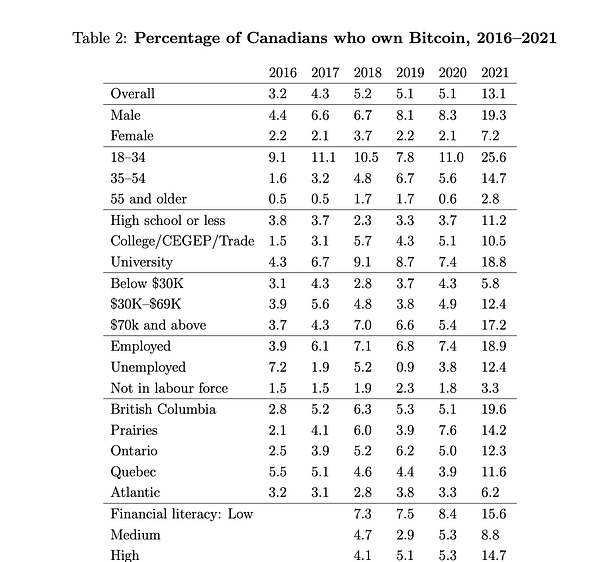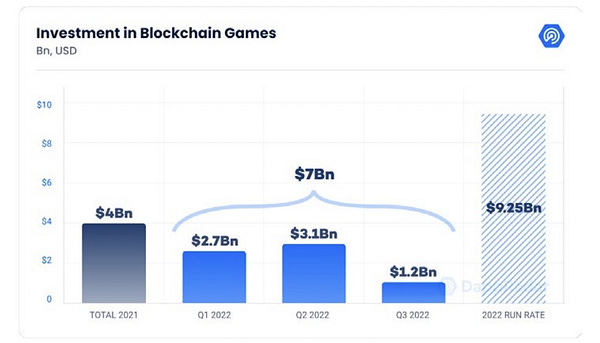Riding The Wave News Summary 86
What is a Web3 browser and how does it work?, South Korea Aims to Boost Economy With Digital ID on Blockchain, & more.
Welcome to Riding The Wave. If you have questions or feedback, please reply to this email. If you are new to the Newsletter, please check out what we provide on our about page and consider subscribing. Within the Newsletter, I provide News Summaries, Weekly Status Updates, & Deep Dive Articles on Specific Topics (Ex: How do I pick which coins/tokens to buy?). More details here
News
Table of Contents
Tweets
South Korea Aims to Boost Economy With Digital ID on Blockchain
A Huge Glut of Bitcoin Mining Rigs Is Sitting Unused in Boxes
Magic Eden Flip-Flops on Solana NFT Royalties, Making Them Optional
Tweets







What is a Web3 browser and how does it work?
Web3 browsers help users interact with decentralized applications built on blockchain technology. Web3 technologies like distributed ledgers, artificial intelligence, Metaverse and others aim to create the next-generation internet, which is accessible to everyone and offers benefits.
Key features of a Web3 browser include:
Immutable ecosystem, i.e., trust that people will download the digital product just as the original creator intended.
Enhanced transparency and security,
Quicker browsing performance,
Complete user anonymity and confidentiality,
Integrating cryptocurrency wallets with multiple blockchains,
Complete control over the content due to decentralization.
Furthermore, search engines can find microcontent texts automatically tagged in Web3, calling for converting countless macro Web1 content into microcontent. Because tagging can somewhat eliminate the uncertainty that homonyms and synonyms introduce to the search process, the end result may be a more accurate search.
Web platforms have long been without the capability of money transfer, resulting in a deluge of internet advertising and dishonest business practices. As the Semantic Web (Web3) promises to arrange the world’s information in a way that Google’s search engine architecture cannot achieve, it enables web monetization opportunities for developers, gamers, and content creators. Web monetization offers an effective, free, native and automatic means of paying creators, funding essential web infrastructure and supporting API calls.
South Korea Aims to Boost Economy With Digital ID on Blockchain
South Korea plans to offer a digital identity secured by blockchain to citizens with a smartphone as it taps into the world’s most tech-savvy population to boost economic growth.
Smartphone-implanted IDs are among the latest emerging technology underpinning a digital economy that has expanded as more people work from home, make cashless payments and explore the metaverse.
Digital IDs simplify verification on the web, removing the need to photograph certificates or log-in via authentication codes sent by text. Instead, activities like applying for state benefits, transferring money or even casting a vote are just a pin or fingerprint away.
McKinsey’s estimate is based on wide take-up of digital IDs, saving time in administrative work, reducing payroll fraud, expanding consumer credit, facilitating trade and spawning new markets.
“Every service that hasn’t been able to fully transition online will now be able to do so,” said Suh Bo Ram, director-general of Korea’s digital-government bureau, who is spearheading the plan.
Koreans currently rely on resident registration cards -- similar to a US social security card -- to identify themselves. Under the proposal, an app would embed those IDs into mobile devices.
Korea will launch digital IDs in 2024 and seeks their adoption by 45 million citizens within two years. That ambition may be hampered by each individual needing to travel to a town office and paying a fee to renew their registration card.
According to proponents, other benefits of digital IDs include:
Facilitating online medical services without visiting doctors in person
Entering hotel rooms by just scanning smartphones over kiosks
Preventing ID forgery and theft
Approving contracts remotely without the need to sign them
Enhanced fast-track boarding processes at airports
Self-identification is one of the core benefits of NFT’s which hasn’t yet been tapped into. It greatly decreases the cost while increasing speed and security.
A Huge Glut of Bitcoin Mining Rigs Is Sitting Unused in Boxes
Keep reading with a 7-day free trial
Subscribe to Riding The Wave to keep reading this post and get 7 days of free access to the full post archives.








